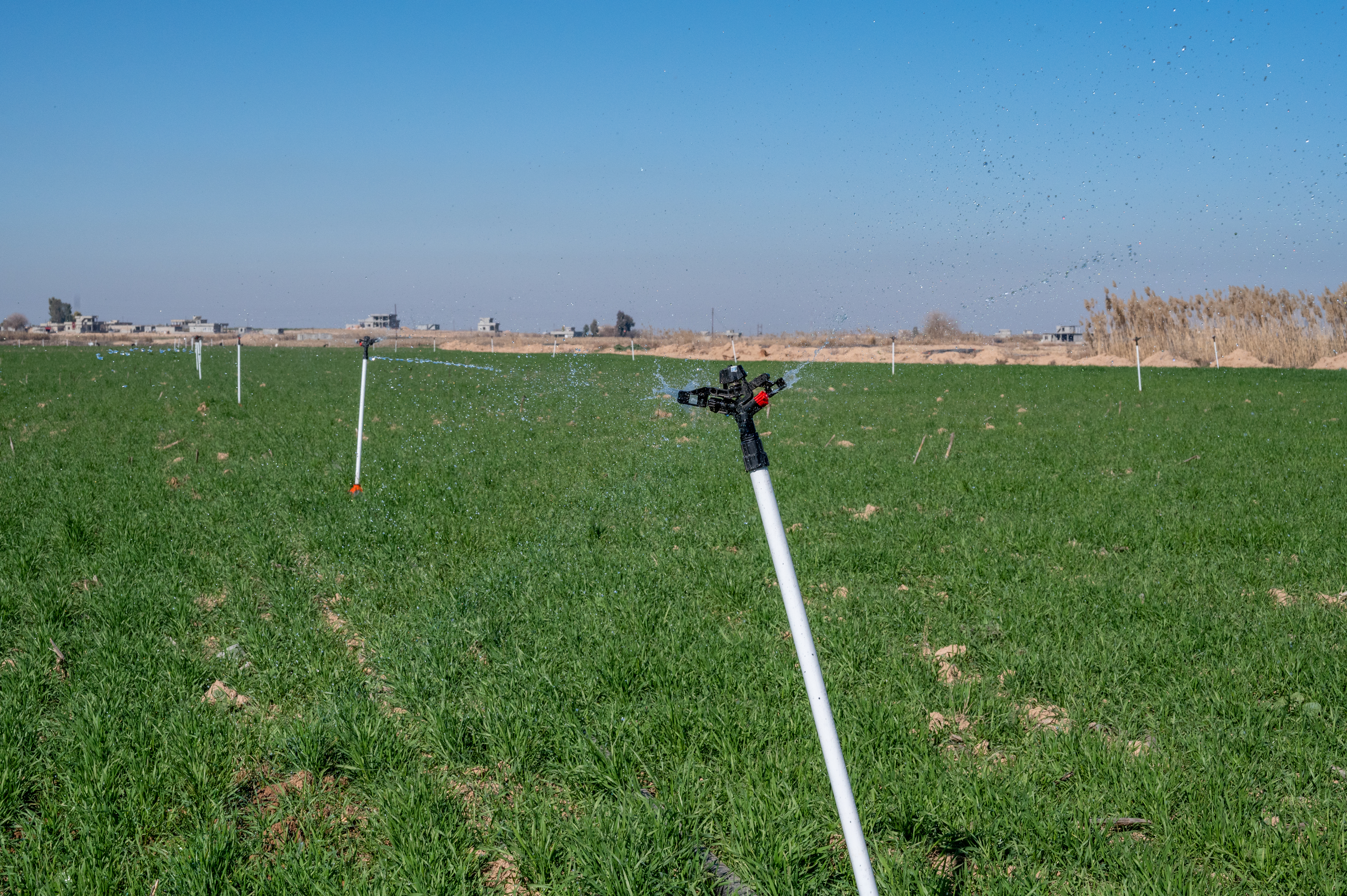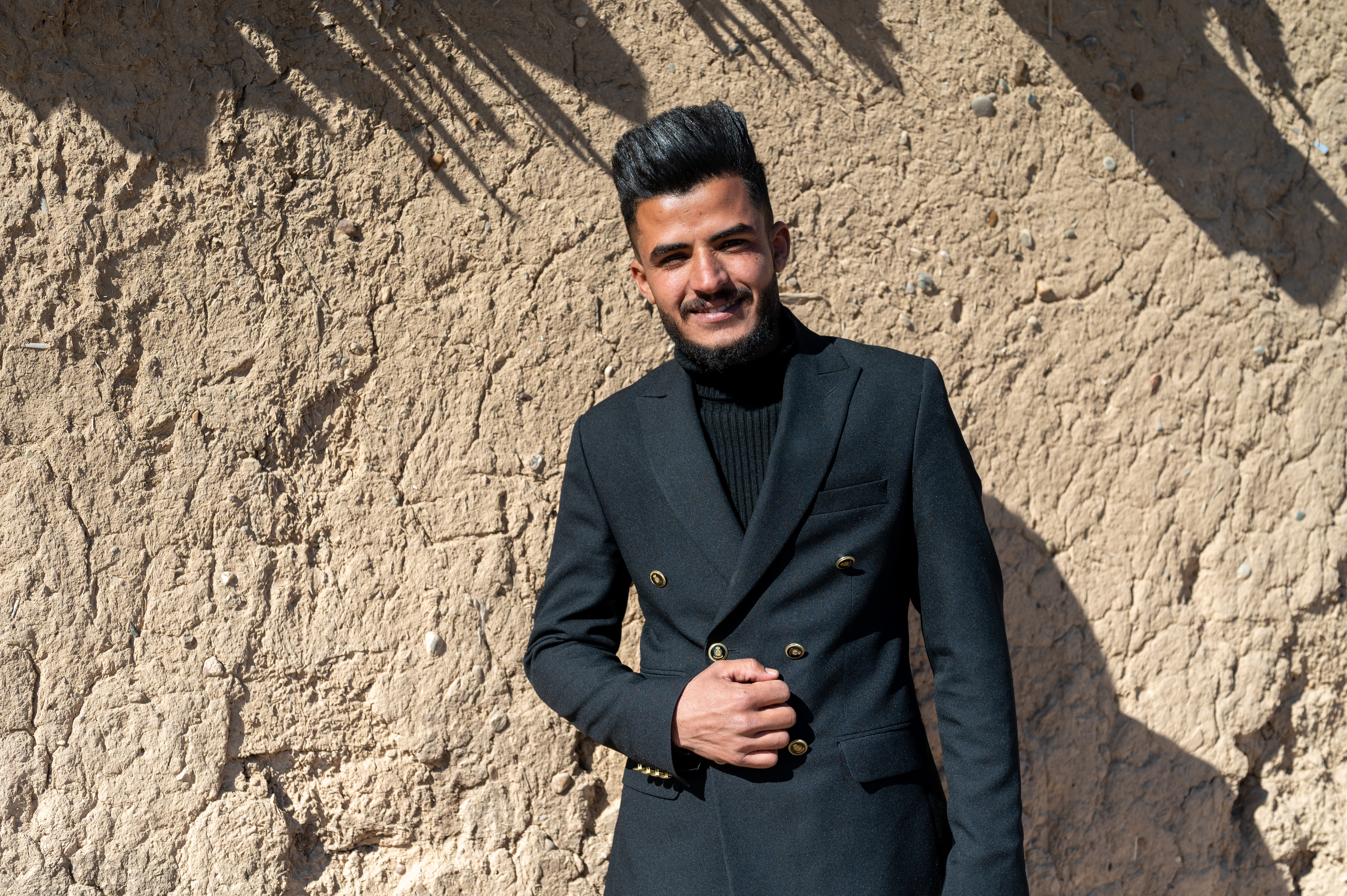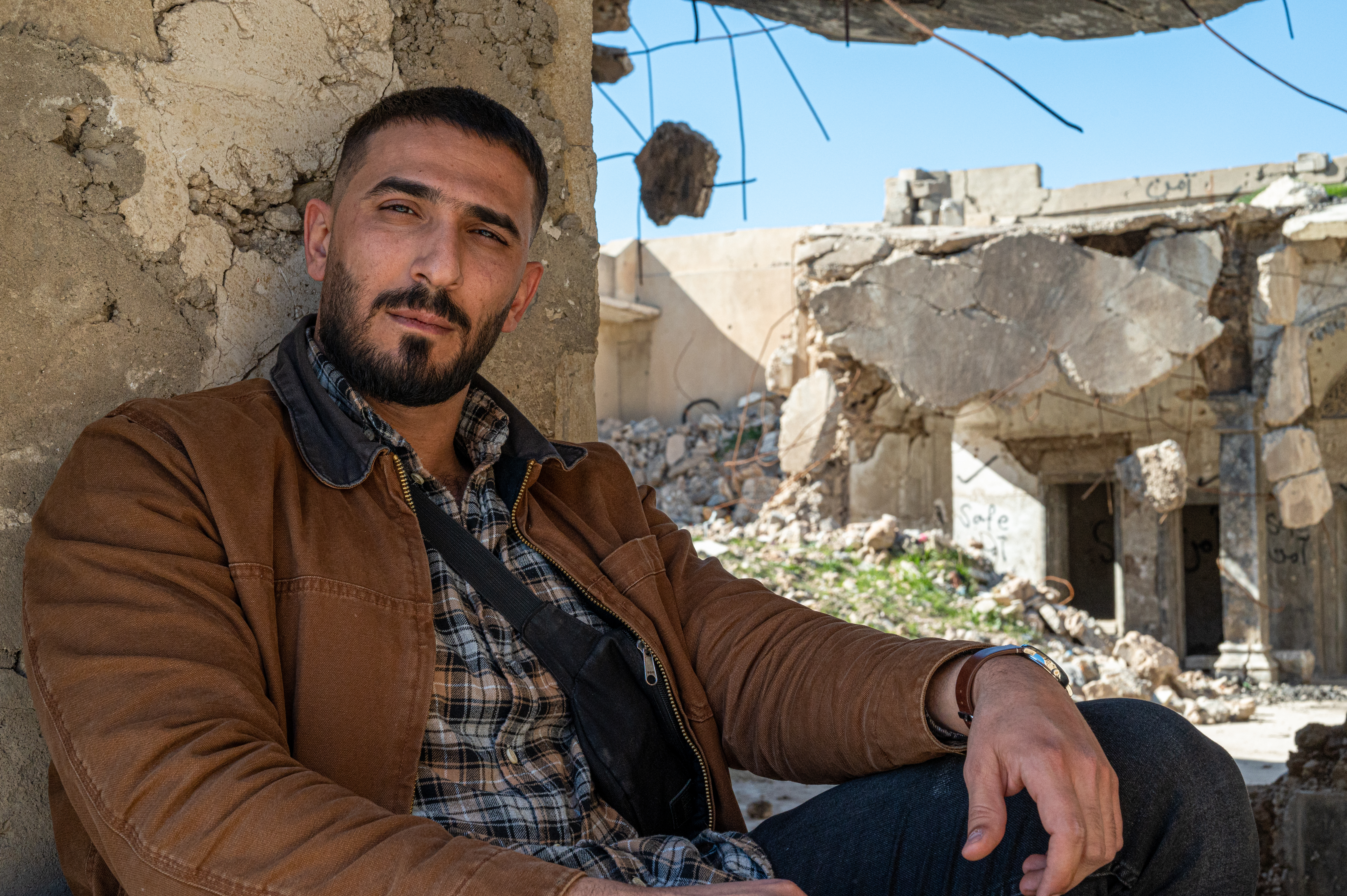Conflict and climate change have largely destroyed the livelihoods of farmers and small agribusiness owners in Hawija. It was once Iraq’s most prosperous agricultural centre. Cordaid joined hands with others to assist hundreds of them in growing their businesses against all odds. “This is about so much more than entrepreneurship. It’s about people finally feeling no longer abandoned.”
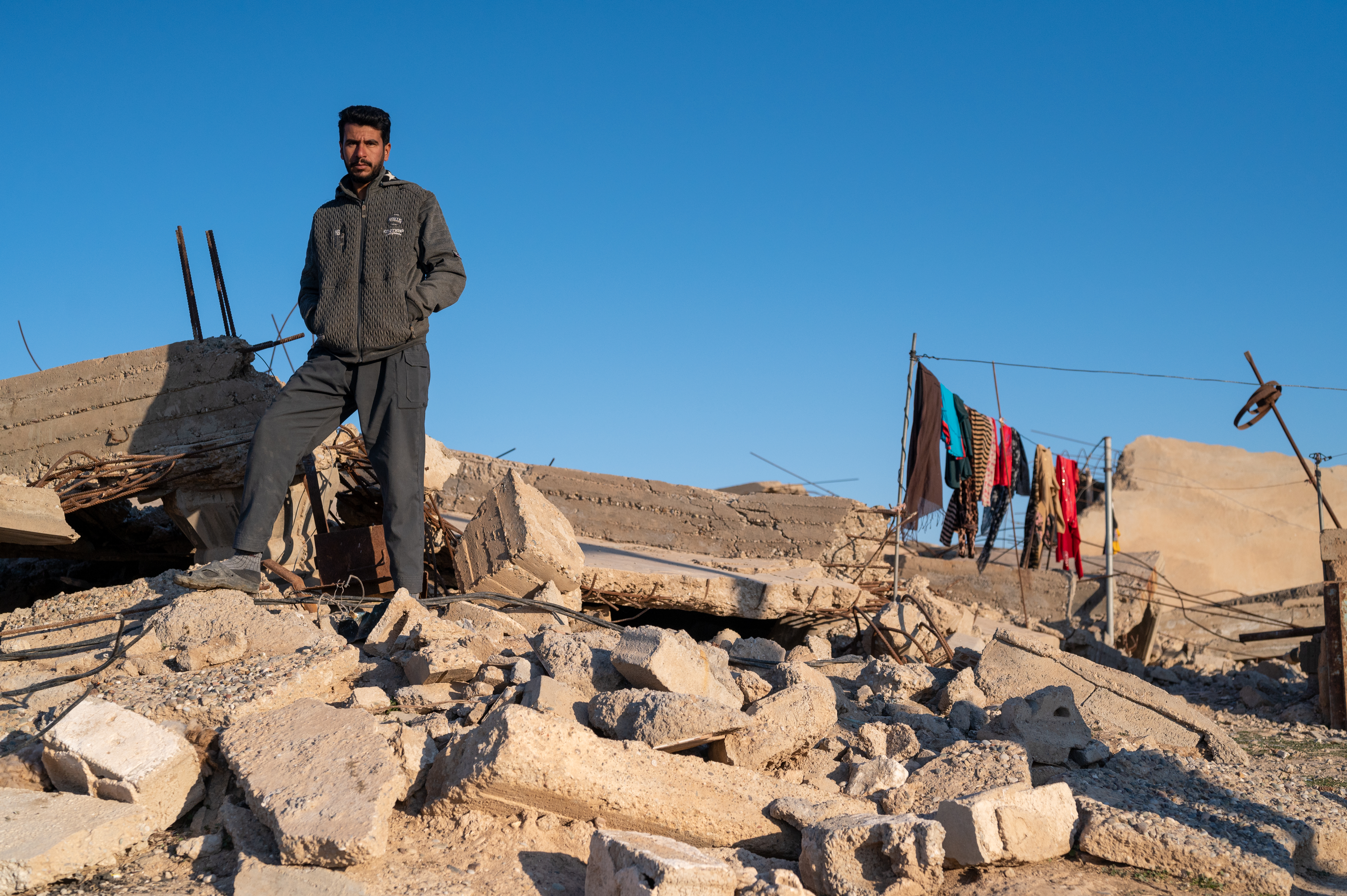
Twenty years ago, on March 20th, 2003, the war in Iraq brutally kicked off. It propelled human suffering, already so pervasive under the dictatorship of Saddam, to unprecedented levels.
Hawija, a district in the northern governorate of Kirkuk, was particularly hard hit. Up to this day, its people continue to suffer. They have seen it all. Vertical and remote warfare from the air by an untouchable enemy and horizontal warfare by troops on the ground. The rise of violent extremism from Al Qaeda and a three-year siege by ISIL. Mass executions, kidnappings, and human shield tactics against an entire population during a brutal war of liberation. Two decades of war and extremism have turned this district in the north into one of the most violence-wracked parts of the country.
Together with the province of Anbar, Hawija district was the last ISIL stronghold to surrender in 2018. Almost five years later, the ‘enduring security’ that military operations of the coalition forces claimed to pursue isn’t there. Many houses and buildings are still inhabitable. Unexploded war remnants are all around. Roads in the wider area are stitched by a myriad of armed checkpoints of different militias and security forces. ISIL cells still operate in security vacuums and brutally target Iraqi forces and civilians. The effects of war still displace thousands of Hawija families. And thousands of persons are still missing.
Destruction during the war
During the war, especially in 2015, airstrikes and explosions ruined large parts of Hawija. Almost eight years later, part of the industrial heart of Hawija is still in ruins, as are the livelihoods of thousands of entrepreneurs and their families.
When we say industrial heart, we mainly mean the agri- and food sectors. Because the majority of people in Hawija are small-scale farmers and agribusiness owners, including grinders, traders, and shop owners.
A past to be proud of
As farmers, they have an illustrious past to look back on. Prior to the ISIL invasion in 2014, Hawija was the most prosperous agricultural centre of Iraq. Its wheat, corn, tomatoes, okra, and other produce fed people in all corners of the country. Now, farmers and agribusiness owners try to survive and run their businesses with a fraction of the machinery, infrastructure, inputs, and livestock they once had. A 2021 assessment estimated that in villages north of Hawjia City, farmers lost 94% of their tools and 95% of their essential crops during the peak of the conflict.
There are national support mechanisms to compensate ISIL victims for their losses. But they cover only a fraction of the damage. And, given the number of people who suffered losses and the complex post-war setting of the country, applications take a long time to be processed.
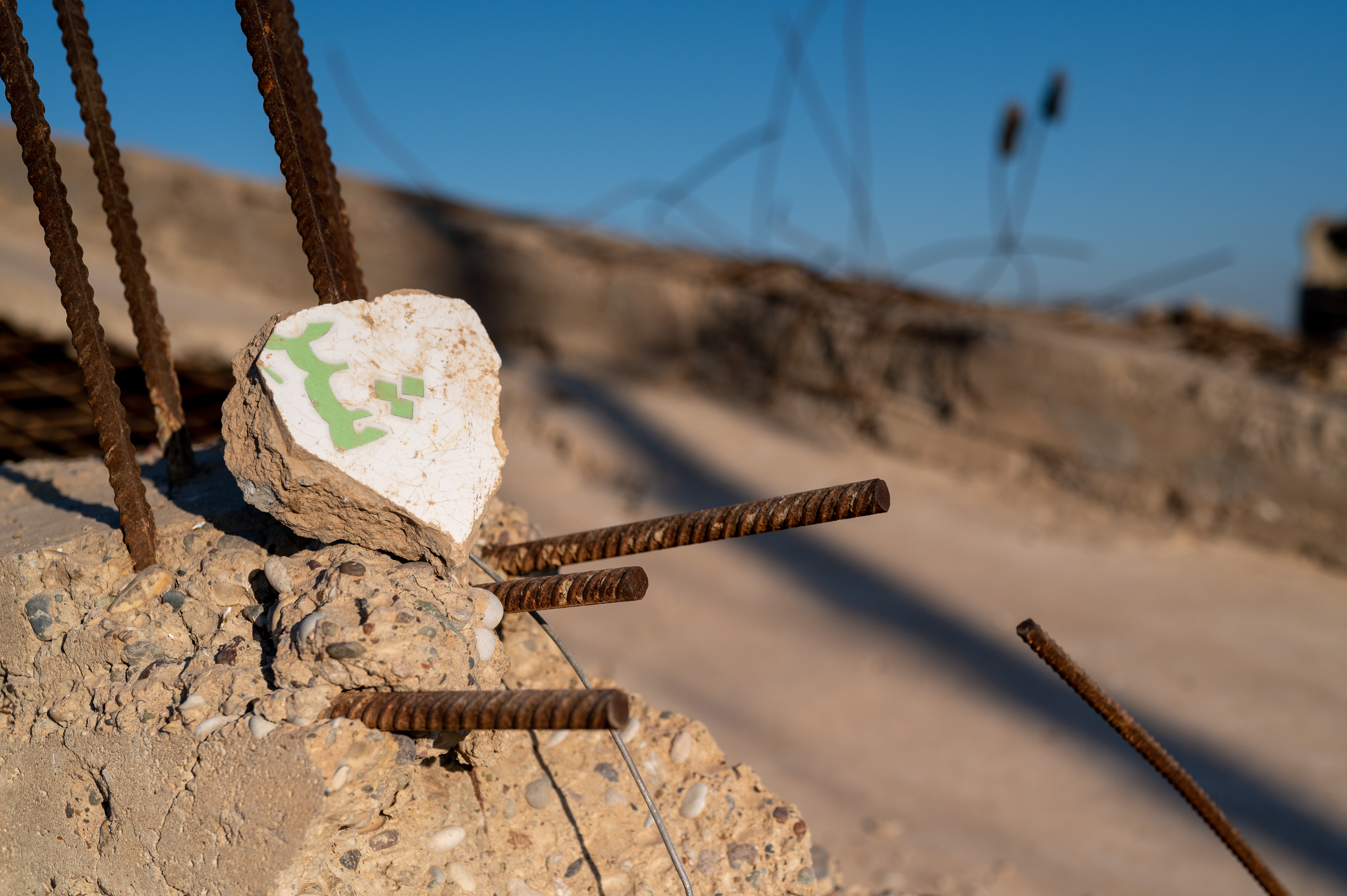
As if conflict and destruction on this scale weren’t enough to deal with, farmers in Hawija increasingly face the consequences of climate change. Rains are increasingly rare and unexpected, 55+ degrees Celsius temperatures are not uncommon, and decreased river flows and levels are a major cause for concern. Unfortunately, water mismanagement only aggravates these problems.
Water scarcity and failing water management systems
Fifty-year-old Sadaa, one of Blossom Up’s many female farmers, started working the land as a child and has never stopped. She can look back on decades of farming practices. “When I was young, water was everywhere”, she remembers. “You just had to dig a few meters, and it came in abundance. These days, boreholes easily exceed 40 meters or more before reaching water levels. Poor rains, falling river flows, wells running dry… it worries me a lot. No water means our animals die, it means no wheat, and also no income.”
For irrigation, farmers in Hawija used to rely almost 100% on state-operated and controlled canals connected to the Al Zab River and its tributaries. This water system was heavily damaged and sabotaged by warfare and by ISIL and has not been fully repaired.
In addition, like Iraq’s giant rivers, the Euphrates and Tigris, the levels of the Al Zab River have been steadily dropping in the past decades. Increasingly, in times of severe water scarcity, authorities shut off these canals, pushing farmers to dig deeper and deeper for private well water.
For farmers who survived the war and violent extremism and who had to start all over again from scratch and with next to no support, adapting to the consequences of climate change is an investment they simply can’t afford.
Blossom Up: assisting in places most INGOs prefer not to come
To support Hawija in addressing this double burden of conflict and climate adversity, Cordaid joined with others in the ‘Blossom Up, Agriculture for growth’.
This project started in September 2022, with UNDP as its implementor, funded by the German Federal Ministry for Economic Cooperation and Development (BMZ), provided through KFW Development Bank. UNDP implements this project in partnership with a consortium consisting of Cordaid, Al-Ghad and Delphy. Its aim? To revatilise Hawija’s agricultural and agri-business sector.
“We saw there was hardly any international support for Hawija. Therefore, we decided to assist the hardest-hit farmers and agri-business owners. We do this in an area many organisations prefer to stay away from for security reasons”, explains Cordaid programme lead Nynke Schaap.
“Altogether, in six months, with Blossom Up, we have provided practical and theoretical crash courses and training to 249 farmers and 77 small agri-business owners”, Business Support and Youth Employment Expert Othman Khalil adds. Of these, 105 farmers received a 3500 USD grant, and 40 SME owners received 3200 USD to invest in their businesses. Grant money was used for major investments such as generators, solar panels, construction work, and, most importantly, new irrigation systems better adapted to water scarcity.
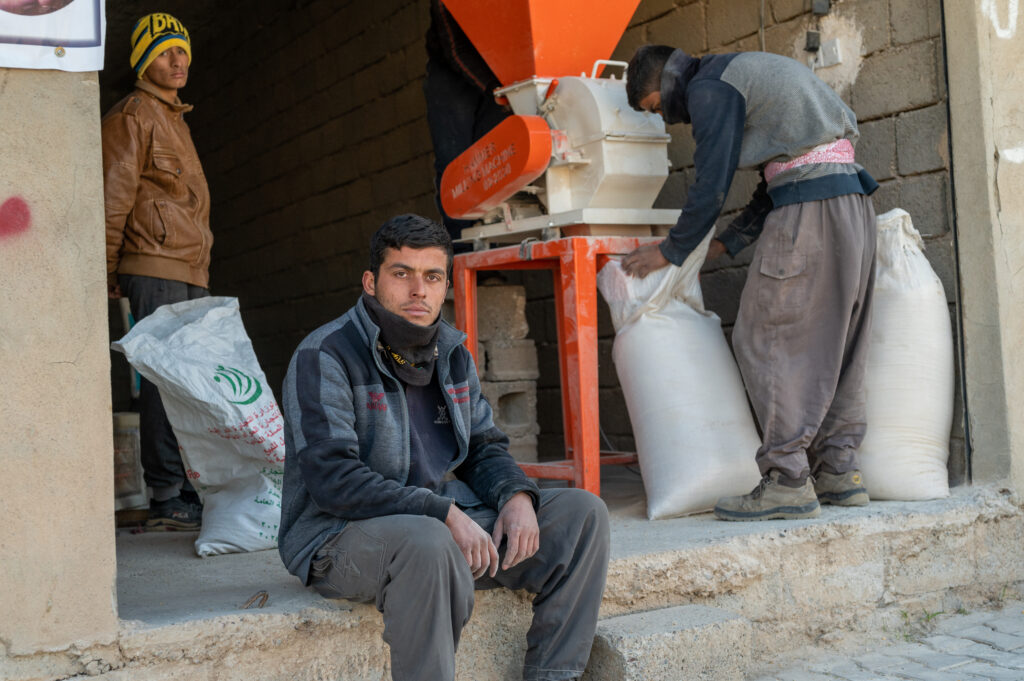
Falah Sabah Mohammed, 24, is a grinder on the outskirts of Hawija city. He is one of the SME owners who participated in the Blossom Up project and received a grant. “During the ISIL occupation, I did not leave Hawija. It was horrible. And I was out of work. Afterwards, I started working as a grinder for someone else. With the Blossom Up grant, I could buy grinding machinery and start my own business. Today, I make twice as much money processing the wheat and corn of about one hundred farmers in the area. Our end product is mostly for animal consumption. Soon, I hope to purchase a machine with a finer mill and produce flour for human consumption. It would increase business a lot.”
Othman was involved in most of the fieldwork and follow-up visits. “Everyone in Hawija needs support, but we could only assist a limited number of people. The selection of participants was, therefore, key,” he says. “We thoroughly assessed the profiles and needs of small-scale farmers and SME owners according to a series of vulnerability indicators. The monthly income for each family member couldn’t exceed 80.000 IQD/Month (about 50 €), and their cultivated land couldn’t exceed eight dunums (about 20.000 m2). Though small, their business needed to be potentially profitable and sustainable enough to invest in. Personal skills and eagerness to learn and change farming and business practices were also among the criteria. As were personal situations and challenges, like having a chronic disease or a disability or running a household independently.”
